Moving to new services
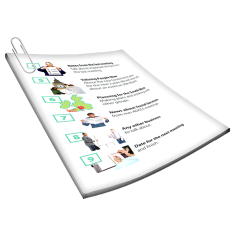
This information is about moving onto new mental health services.
It has information about

- Becoming an adult

- Growing older

- Where to get more information
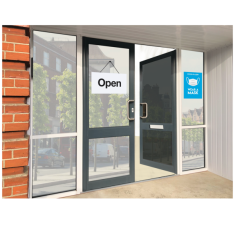
There are times in life when you might need
- To move to a different mental health service
- Different types of support

These times might include
- When you become an adult
- When you grow older

Change can be difficult.
There are ways you and your support network can prepare for moving to a new service.

Becoming an adult

If you see mental health workers at services for young people you will need to move to adult services around the time you turn 18 years old.
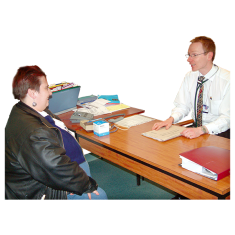
Mental health workers are people who work to help you with your mental health.

Planning for moving to adult services should start from your early teens.
You should be involved in the planning.
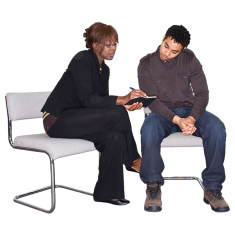
Someone you trust will likely also help with planning.
There are many people you might trust.
For more information about who you might trust go to https://www.idmhconnect.health/
someone-trust

Mental health workers have some responsibilities.
Responsibilities are things they need to do.
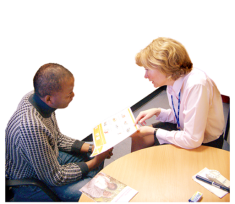
Your mental health workers from the service for young people should
- Discuss with you the best adult services for you

- Help you find and get an appointment with the new service

- Speak to your new mental health worker if that is OK with you

The mental health worker you have now can give any health records to your new service if that is OK with you and your guardian.

A guardian is a person who helps you make decisions about parts of your life when you cannot make decisions by yourself.

When moving to adult services it can help to

- Have a meeting with the mental health workers you have now and your new mental health workers

- Go to your first few appointments at the adult service while you are still in touch with the mental health worker you have now

- Discuss how your time with the adult service went with the mental health worker you have now

Tips
To help you prepare for moving to an adult service you could

- Start noting down your appointment times with your mental health worker

- Organise when you will see your mental health worker

If your parent or support worker usually stays with you during appointments you could try to be more independent.

Independent means that you can make your own choices and do some things on your own.
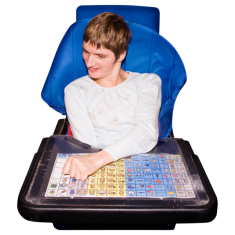
You could be more independent by communicating with your mental health worker alone for part of the session.
Only do this if you feel comfortable.

To communicate is how you understand and share your feelings or information.

Things people find hard about moving to adult services and what to do

Adult services can be hard to find.
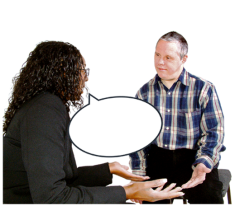
The mental health worker you see now should help you find an adult service that is right for your needs.

If your current mental health worker cannot find a service you can ask someone you trust if they can suggest anyone.

You might have to go to a few different adult services to get support.
Mental health workers from adult services might not work together.
This can be a big change.
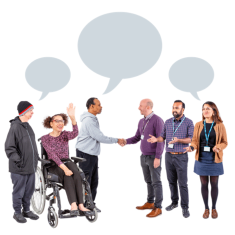
If you would like your health and mental health workers to work together more you can discuss this with them.

For more information about how your health and mental health workers work together go to https://www.idmhconnect.health/
working-your-team/ER

Sometimes people find that their new adult service is not working for them and stop going.
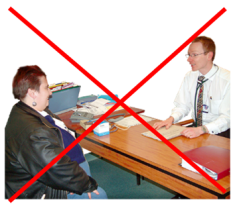
These people might no longer get the help that they need.
You can do things so this is less likely to happen to you.

You might keep seeing the mental health worker when you first start using your new adult service.

If you do not think the new adult service will work for you discuss your options with your current mental health worker.

Growing older

Thinking about the future
Planning for when you get older is important.
For a PDF download of this section go to
https://idmhconnect.health/sites/default/
files/media-document/Growing-older-Easy-Read.pdf

People often think about
- What will happen when they get older
- Who will care for them if their parents cannot anymore

You might think about where you will live.

You might also think about who will help you with money.
You can discuss whether you want to set up a Power of Attorney.
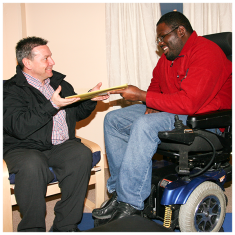
A Power of Attorney is a legal document that says someone can
- Look after your money
- Make legal decisions for you

For more information go to https://www.tag.nsw.gov.au/
wills/make-power-attorney/
what-power-attorney
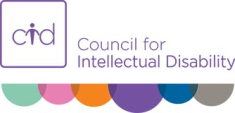
You can also use the Council for Intellectual Disability information guide about how to manage your money.
For more information go to https://cid.org.au/resource/manage-your-money/

When planning for growing older you might think about who will make choices for you if you cannot make them yourself.

You might want to think about choosing a guardian.
For more information go to https://www.tag.nsw.gov.au/public-guardian/easy-read-guardianship

Plan Ahead Days across NSW can provide information on
- Guardians
- Power of attorneys

For more information about Plan Ahead Days go to https://selfservice.tag.nsw.gov.au/plan-ahead-days

You might want to think about advance care planning.
Advance care planning means making decisions about the health care you want in the future.
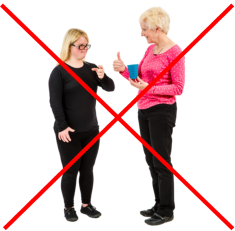
This plan will help if you cannot communicate anymore.

This can include an Advance Care Directive.
An Advance Care Directive lets people know what medical treatment you want if you are very sick or dying.
It is something written.
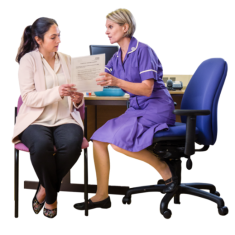
Treatments are things that can help you feel better.
Treatments can be therapies and medicine.

Therapies are activities your mental health workers use to support your mental health.

Medicine is sometimes called medication or drugs.
Medicine can be in
- A tablet
- A pill
- A drink
- An injection

For more information about
- Advanced Care Directives go to https://www.health.nsw.gov.au/ palliativecare/Documents/talking-about-death.PDF
- Making an Advanced Care Directive go to https://www.health.nsw.gov.au/ patients/acp/Publications/acd-form-info-book.pdf

This information is not in Easy Read.
You might want to ask someone to look at it with you.

When planning for the future you might also think about what will happen with your NDIS supports.
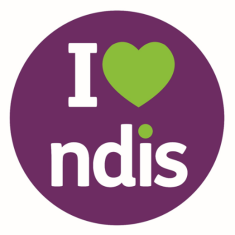
NDIS is short for National Disability Insurance Scheme.
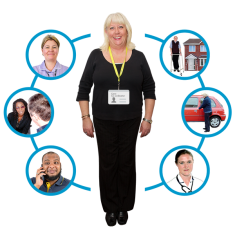
You can discuss this with your NDIS Support Coordinator.
A support coordinator is a person who helps plan and organise
- Your care
- Other services you get

If you were an NDIS participant before you turned 65 you might
- Keep getting disability supports under the NDIS
- Get supports from the Commonwealth Aged Care System

The Commonwealth Aged Care System is support from the government for older people.

You might have other questions about your plans for the future.
You can discuss these questions with someone you trust.

It is good to make a plan.
Mental health services for older people
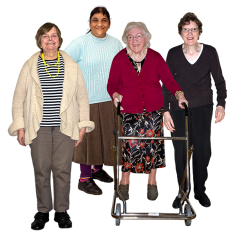
Some services provide care just for older people.
In NSW these are called Older Peoples Mental Health services.

Older Peoples Mental Health services mostly provide care to people over 65 years old.
People under 65 years can use these services if it suits their needs.

First Nations peoples 50 years and older can use these services.
First Nations peoples are the Aboriginal and Torres Strait Islander peoples.

Older Peoples Mental Health services provide support for
- Older people in the community

- Older people who must go to hospital for their mental health

- Aged care homes and programs

You can ask your GP or mental health worker for more information about Older Peoples Mental Health services.

Below is a list of information sheets and websites to support you to move to new services.

For more information about
- Managing your Money go to
https://cid.org.au/wp-content/uploads/2020/10/Manage-Your-Money-Easy-Read-Infoguide-CID.pdf
- Power of Attorneys go to
https://www.tag.nsw.gov.au/wills/make-power-attorney/what-power-attorney
- Guardianship go to
https://www.tag.nsw.gov.au/public-guardian/easy-read-guardianship
- Plan Ahead Days in NSW go to
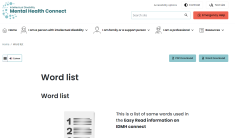
There are some tricky words on this Easy Read page.
For more information about these words go to https://www.idmhconnect.health/word-list